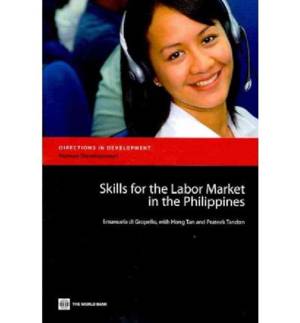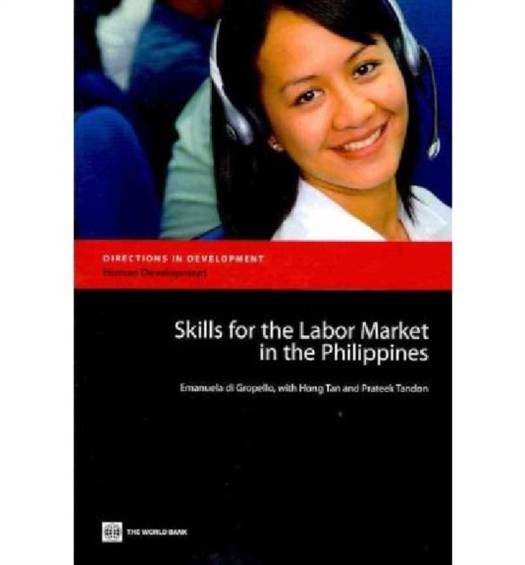
- Afhalen na 1 uur in een winkel met voorraad
- Gratis thuislevering in België vanaf € 30
- Ruim aanbod met 7 miljoen producten
- Afhalen na 1 uur in een winkel met voorraad
- Gratis thuislevering in België vanaf € 30
- Ruim aanbod met 7 miljoen producten
Zoeken
€ 34,45
+ 68 punten
Omschrijving
The Filipino economy has experienced overall growth over the last 20 years, but the growth of the manufacturing sector has been sluggish, and the country has lost innovation capacity. Regaining momentum will depend on many factors, but skills have a key role to play in supporting the growing service sector, improving the competitiveness of the manufacturing sector, and enhancing the long-term ability of the country to innovate and adapt and assimilate new technologies. 'Skills for the Labor Market in the Philippines' analyzes the functional skills with which workers need to be equipped to be employable and support firms' competitiveness and productivity, and evaluates the role of the education and training system in providing these skills. Based on an innovative survey of employers, this book is the most comprehensive attempt thus far to review the skills that matter for the labor market. The book reveals that a dramatic increase in educational attainment occurred in just under two decades in the Philippines. However, in light of the growing demand for skills, the authors also make it clear that there are indications of emerging skills gaps, suggesting that skills are becoming a constraining factor for economic growth. The authors flesh out several policy implications, which should provide a valuable contribution to improving the country's education and training system. The book is primarily intended for the policy makers and researchers who shape the delivery of education and training in the Philippines and other middle-income countries.
Specificaties
Betrokkenen
- Auteur(s):
- Uitgeverij:
Inhoud
- Aantal bladzijden:
- 270
- Taal:
- Engels
Eigenschappen
- Productcode (EAN):
- 9780821384893
- Verschijningsdatum:
- 24/09/2010
- Uitvoering:
- Paperback
- Formaat:
- Trade paperback (VS)
- Afmetingen:
- 150 mm x 224 mm
- Gewicht:
- 417 g

Alleen bij Standaard Boekhandel
+ 68 punten op je klantenkaart van Standaard Boekhandel
Beoordelingen
We publiceren alleen reviews die voldoen aan de voorwaarden voor reviews. Bekijk onze voorwaarden voor reviews.











